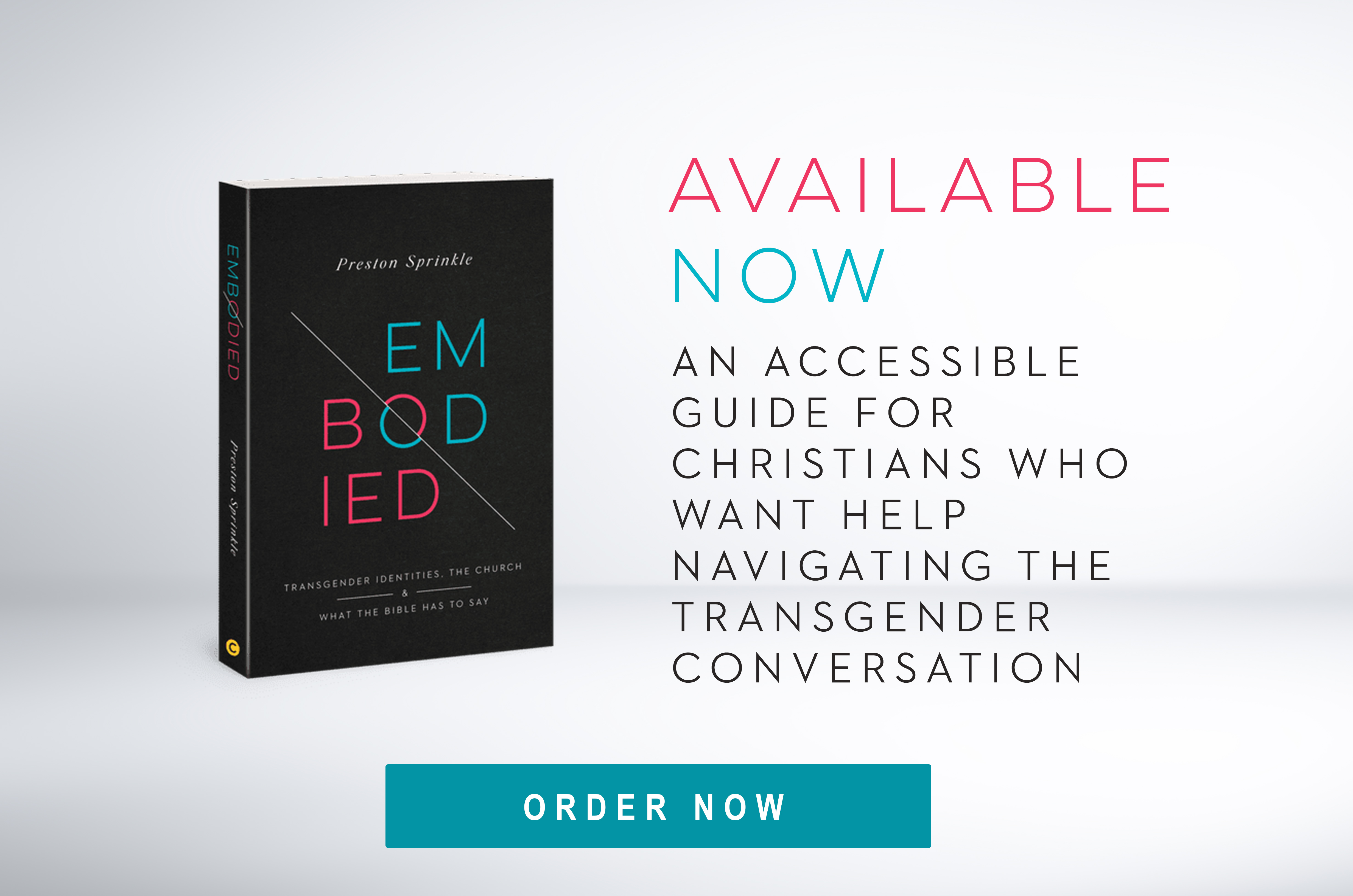
By Gregory Coles. Greg is a writer and member of the Center's Collaborative Team. Be sure to check out his new book No Longer Strangers.
This is a story about my straight friend Rachel.
Why my straight friend, you ask? Why don’t I just call her my friend?
Great question, Imaginary Reader. I’m glad you asked. Take my word for it, this particular biographical detail will become relevant later in the story.
The year is 2019, and Rachel has decided to join me for the second annual Revoice conference in St. Louis. As we travel together from central Pennsylvania, I try to describe to Rachel the composition of the crowd we will soon be entering: a collective of LGBTQ and same-sex-attracted people, along with straight pastors and family members and friends, hailing from a host of different Christian traditions (as well as the occasional non-Christian tradition or atheism or agnosticism), coming together to consider what it looks like for followers of Jesus to flourish while holding a historic biblical sexual ethic.
“As a straight person,” I tell her, “you’ll be warmly welcome. But you will be in the minority. It might take some getting used to.”
“I look forward to it,” Rachel says, because she is an intrepid woman.
Buy Now!
Embodied: The Latest from Preston Sprinkle
We meet Scott in the Chicago airport. Recognizing me as the author of a book which features half my face on its cover, Scott introduces himself to us as we stand in the boarding line together. “You must be headed to Revoice,” he says. “I’ll see you there.”
We meet up again near the baggage claim in the St. Louis airport. Scott has reserved a rental car for the weekend and offers to give us a ride to our hotel. We accept.
Once we’re happily ensconced in the car, Scott begins to share with us the story that brings him to this conference: a lifetime of attraction exclusively to the same sex, his choice to follow Jesus as a celibate person, the joys and sorrows he’s encountered since making that decision. It’s a story I’ve told about myself a hundred times, a story I’ve heard in return a hundred times more. And still, on the two-hundredth iteration, sharing in this moment feels like a sacred privilege.
When Scott finishes his story, he looks up at Rachel through the rearview mirror. “I’ve already read Greg’s book,” he says, “so I know why he’s here. But what’s your story, Rachel?”
This is the moment, Imaginary Reader, where you and I must recall that Rachel is straight. Scott, however, does not have the luxury of this information. When Rachel hesitates at Scott’s question, unsure where to begin, Scott offers charitably, “Feel free to share as much or as little as you’re comfortable sharing.”
Rachel tries admirably to hint at her straightness without actually calling herself straight: I’m a friend of Greg’s from our church in Pennsylvania. I came here to support Greg. But the more Rachel avoids words like “straight” and “gay,” the more convinced Scott seems to become that she simply doesn’t feel ready to talk about her own attractions to the same sex.“I understand,” he says, in a voice oozing gentleness and compassion. “How awesome that you have a friend like Greg who can be here with you. I hope you’re really encouraged by your time here at the conference.”
I, finding the whole situation hilarious, say nothing. (I am a superb friend.)
When we arrive at the hotel and Scott drives away with the rental car, Rachel turns to me. “Did he think I was…?”
I let out the laugh that has been simmering inside me for the last ten minutes. “Oh yeah. He definitely thinks you’re a lesbian.”
“Should I have told him I’m not?” she asks.
I shrug. “I don’t know. Is it important to you that he knows you’re not a lesbian?”
The conversation carries us up to Rachel’s hotel room, where she drops her luggage and looks out at the St. Louis skyline. “I feel sort of dishonest that I didn’t say anything. But what would I even say? Do I just say, I’m straight? It feels so weird to have to say it.I’ve never had to tell anyone I was straight before.”
“You’ve never been part of the sexual minority,” I answer. “People have just assumed that you’re straight. But here at Revoice, there’s no reason for them to assume that.”
“Is this what it feels like,” she asks with dawning recognition, “to have to choose between saying you’re gay and letting people assume you’re straight?”
Triumphantly I throw my hands up, the compassion of Scott notably absent from my voice: “How does it feel, straight girl?”
I’ve sometimes advised people to watch this brilliant snippet from the movie Love, Simon if they want further insight into why the words “I’m gay” feel profitable to me in a way the words “I’m straight” have never felt profitable to most of my straight friends. But for those who can spare three days instead of 45 seconds, I recommend even more highly that you show up to a Revoice conference (or another space in which straight people are no longer the presumptive majority). I recommend sharing a car ride with Scott and telling your life story to an unfamiliar audience. I recommend stepping into a world where the things you’ve taken for granted are no longer taken for granted.
It’s remarkable how different the world becomes when you’re already understood (or misunderstood) before you speak a single word.

